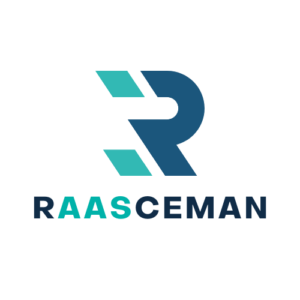
| Název: | Resilient and Adaptive Supply Chains for Capability-based Manufacturing as a Service Networks |
| Akronym: | RAASCEMAN |
| Registrační číslo: | 101138782 |
| Výzva: | HORIZON-CL4-2023-TWIN-TRANSITION-01 |
| Poskytovatel dotace: | European Union – Horizon Europe |
| Doba řešení: | 09/2024 – 08/2026 (24 měsíců) |
| Hlavní řešitel za CIIRC: | Ing. Pavel Burget Ph.D. |
| Koordinátor: | DFKI, Germany |
| Další účastníci | Flanders Make, Belgie LMS, Řecko CEA, Francie CVUT, Česká republika HEINLAND-PFALZISCHE Technical University, Německo NETCOMPANY-INTRASOFT, Lucemburk CONTINENTAL AUTOMOTIVE, Česká republika ASKA BIKE, Belgie |
| Rozpočet: | Celkový rozpočet: € 4 637 300.00 Podpora EU: € 4 637 300.00 Z toho podpora pro CIIRC ČVUT: € 517 625.00 |
Anotace
Uplynulé roky ukázaly zranitelnost rigidních mezinárodních dodavatelských řetězců. Schopnost přizpůsobit se změnám a vytvářet odolné dodavatelské řetězce bude klíčovou konkurenční výhodou pro výrobce v budoucnosti.
RAASCEMAN se zabývá třemi různými možnostmi, jak reagovat na nepředvídané události:
– přizpůsobení výrobního plánu na základě dat dodavatelského řetězce,
– přizpůsobení dodavatelského řetězce změnou dodavatele s využitím sítě MaaS a
– integrací obnovy jako alternativy nákupu s využitím cirkularity.
Projekt si klade za cíl umožnit firmám zmírnit krátkodobé a střednědobé nepředvídané události a umožnit firmám účastnit se dynamické MaaS sítě, čímž se snižují tržní bariéry pro společnosti specializující se na obnovu nebo alternativní technologie, jako je 3D tisk. RAASCEMAN navrhuje a demonstruje sérii softwarových nástrojů, které digitalizují dodavatelské řetězce pomocí digitálních dvojčat a infrastruktury pro výměnu dat založené na evropských hodnotách.
RAASCEMAN rozvine své celkové ambice prostřednictvím pěti vědeckých cílů, konkrétně:
- akční návrhy pro přizpůsobení dodavatelských řetězců nebo interní výroby a logistiky na základě spolehlivého kvantifikování a předpovědi dopadů nepředvídaných událostí,
- dynamická generace dodavatelského řetězce umožňující odolnost a sebeadaptaci sítí MaaS,
- budování důvěry v sítě MaaS, auditování spolehlivosti dodavatelů a testování plausibility nabídek,
- dynamické plánování a harmonogramování výrobních procesů, které umožňují firmám rychle přizpůsobit logistiku a výrobu měnícím se externím podmínkám, a
- dynamické montáže a demontáže, které umožňují strojům v terénu přizpůsobit se.
Naše řešení demonstrujeme ve dvou průmyslových případech použití v automobilovém a cyklistickém průmyslu a vytváříme MaaS síť spojující pět pilotních linek rozprostřených po Evropě. Většina výsledků projektu bude zpřístupněna pod vhodnými licenčními schématy open-source, aby se po ukončení projektu RAASCEMAN umožnil další rozvoj integrace.


